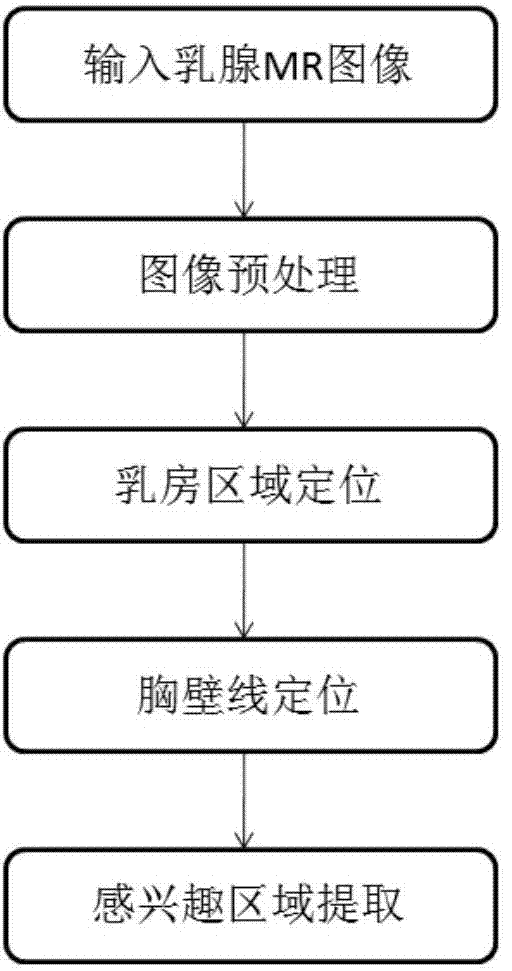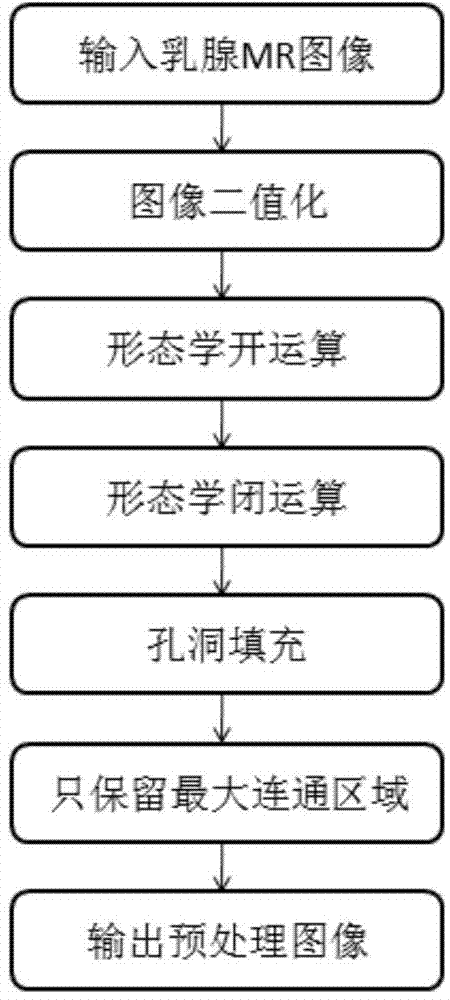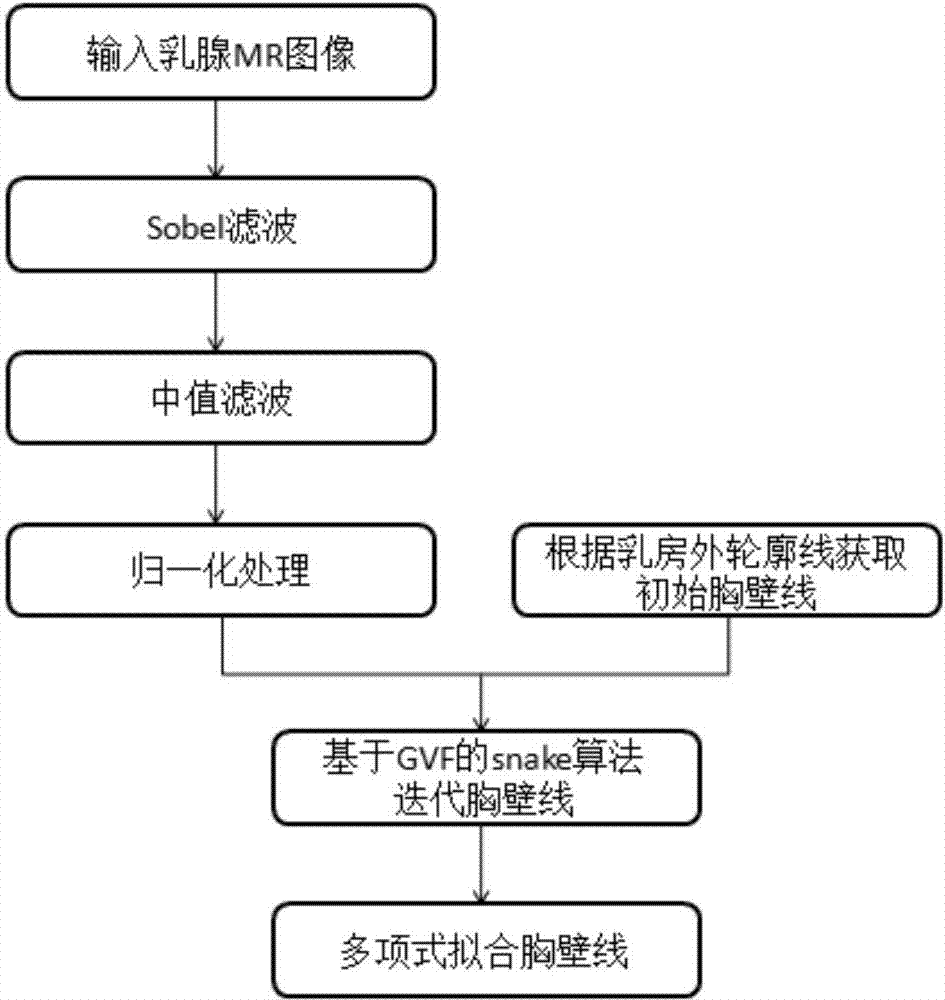Computer-assisted lump detecting method based on mammary gland magnetic resonance image
A magnetic resonance image, computer-aided technology, applied in the field of medical image processing and pattern recognition, can solve the problems of poor tumor segmentation, low accuracy, low sensitivity and specificity
- Summary
- Abstract
- Description
- Claims
- Application Information
AI Technical Summary
Problems solved by technology
Method used
Image
Examples
Embodiment 1
[0106] A computer-aided mass detection method based on breast magnetic resonance images, comprising the following steps:
[0107] Such as figure 1 As shown, S1, extracting the region of interest from the breast magnetic resonance image; the specific steps are:
[0108] Such as figure 2 As shown, S11, preprocessing the breast magnetic resonance image to obtain a preprocessing image; it specifically includes:
[0109] S111, perform image binarization processing,
[0110] S112. Perform a morphological opening operation;
[0111] S113. Perform a morphological closing operation;
[0112] S114. Carry out hole filling;
[0113] S115. Extract the output of the largest connected region to obtain the preprocessed image.
[0114] S12. Extracting the outer contour of the breast; it specifically includes:
[0115] S121. Using an edge operator to extract the outer contour of the breast;
[0116] S122. Perform polynomial fitting on the outer contour of the breast.
[0117] Such as ...
Embodiment 2
[0207] Such as Figure 5 As shown, this embodiment is an improvement made on the basis of the first embodiment, and its difference from the first embodiment is that the outline of the initial tumor area is extracted by using the fuzzy C-means clustering method. It specifically includes:
[0208] S21. Input the region of interest;
[0209] S22. Perform a neighborhood suppression operation;
[0210] S23. Perform a Gaussian denoising filtering operation;
[0211] S24. Perform a histogram equalization operation;
[0212] S25. Perform fuzzy C-means clustering operation;
[0213] S26. Obtain a binarized image;
[0214] S27. Perform hole filling operation;
[0215] S28. Remove the small area and output, that is, obtain, the contour line of the initial mass area.
Embodiment 3
[0217] This embodiment is an improvement made on the basis of Embodiment 2. The difference between it and Embodiment 2 is that: using the result of obtaining the outline of the initial tumor area using the fuzzy C-means clustering method in Embodiment 2 as a basis, using the method based on The snake energy model segmentation method of the gradient vector field performs secondary segmentation and extraction on the contour line of the initial tumor region to obtain the optimized contour line of the initial tumor region.
PUM
 Login to View More
Login to View More Abstract
Description
Claims
Application Information
 Login to View More
Login to View More - R&D
- Intellectual Property
- Life Sciences
- Materials
- Tech Scout
- Unparalleled Data Quality
- Higher Quality Content
- 60% Fewer Hallucinations
Browse by: Latest US Patents, China's latest patents, Technical Efficacy Thesaurus, Application Domain, Technology Topic, Popular Technical Reports.
© 2025 PatSnap. All rights reserved.Legal|Privacy policy|Modern Slavery Act Transparency Statement|Sitemap|About US| Contact US: help@patsnap.com



